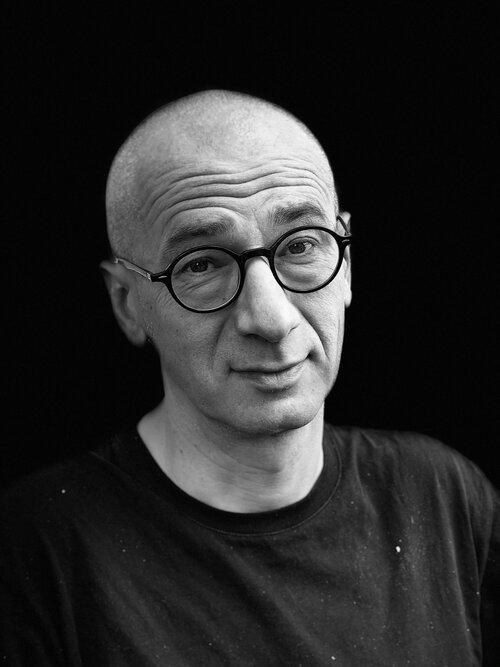43.
Eugene Ostashevsky
for Carole Birkan Berz.
The aura of Laura in an aula: Laura aurea, coma, caput.
Slumbers Laura of limbs once limber, lamb amber, the balm of Balaam.
Holy Balaam of Ladoga, land of self-reliant samovars.
Samovar, amputee, silly putty, lumber not tree, limbless Laura of no one.
My grandfather and grandmother disembark at Balaam from a bark.
The war is over, there is an orchestra, speeches are made.
The Laestrygonian samovars pelt them with rocks from a rock over the landing, those that still have arms,
each is like a T.
The party breaks up, the orchestra hits a false note, the bark sails off from the isle of saviors
samovars.
Then poor lice come and carry the samovars off to Ultima Thule, where they are stacked frozen
like lumber.
They have lost their members, now no one remembers them.
Laurels are not for those who gave, those who saved themselves saved themselves a
membership.
Not those who go to the front, those who front are crowned with laurels, which are for members
only.
You poet are an ass who brays prays, jeder Samowar ist schrecklich, no one desires a samovar.
Everyone desires Laura who combs ihr goldenes Haar now ashen kaputt.
NOTE:
Eugene Ostashevsky dedicates this poem to Carole Birkan-Berz, the co-editor of Translating Petrarch Poetry’s: L’Aura del Petrarca from the Quattrocento to the 21st Century. Samovar is a slang term for Russian soldiers in WWII who returned as amputees. Often rejected by their families and society at large, they were hid by the state in far-away facilities, such as one on the island of Balaam on lake Ladoga. Aula means 'classroom' in Italian, Laura aurea, coma, caput, means 'golden Laura, hair, head' in Latin. The ending of the poem quotes from Rilke (jeder, every, schrecklich, terrifying) and Heinrich Heine’s “Lorelei.”
